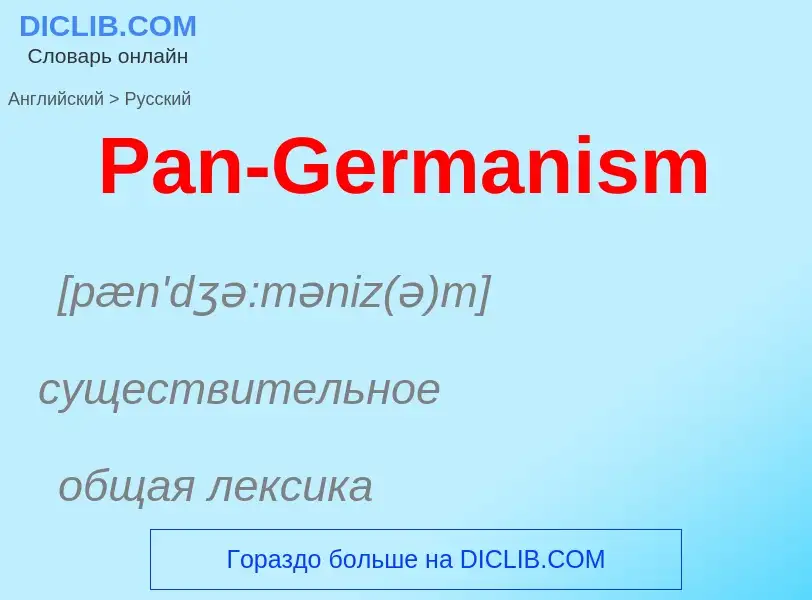Translation and analysis of words by artificial intelligence
On this page you can get a detailed analysis of a word or phrase, produced by the best artificial intelligence technology to date:
- how the word is used
- frequency of use
- it is used more often in oral or written speech
- word translation options
- usage examples (several phrases with translation)
- etymology
Pan-Germanism - translation to russian
[pæn'dʒə:məniz(ə)m]
существительное
общая лексика
пангерманизм
[pæn'dʒə:mən]
прилагательное
общая лексика
пангерманский
Definition
Wikipedia
.jpg?width=120)
Pan-Germanism (German: Pangermanismus or Alldeutsche Bewegung), also occasionally known as Pan-Germanicism, is a pan-nationalist political idea. Pan-Germanists originally sought to unify all the German-speaking people – and possibly also Germanic-speaking peoples – in a single nation-state known as the Greater Germanic Reich (German: Großgermanisches Reich), fully styled the Greater Germanic Reich of the German Nation (German: Großgermanisches Reich der Deutschen Nation).
Pan-Germanism was highly influential in German politics in the 19th century during the unification of Germany when the German Empire was proclaimed as a nation-state in 1871 but without Austria (Kleindeutsche Lösung/Lesser Germany), and the first half of the 20th century in the Austro-Hungarian Empire and the German Empire. From the late 19th century, many Pan-Germanist thinkers, since 1891 organized in the Pan-German League, had adopted openly ethnocentric and racist ideologies, and ultimately gave rise to the foreign policy Heim ins Reich pursued by Nazi Germany under Austrian-born Adolf Hitler from 1938, one of the primary factors leading to the outbreak of World War II. As a result of the disaster of World War II, Pan-Germanism was mostly seen as a taboo ideology in the postwar period in both West and East Germany. Today, Pan-Germanism is mainly limited to some nationalist groups in Germany and Austria.

.jpg?width=200)

![annexing of Austria, Sudetenland and others]] to form the Greater German Reich as of 1944. annexing of Austria, Sudetenland and others]] to form the Greater German Reich as of 1944.](https://commons.wikimedia.org/wiki/Special:FilePath/NS administrative Gliederung 1944.png?width=200)
